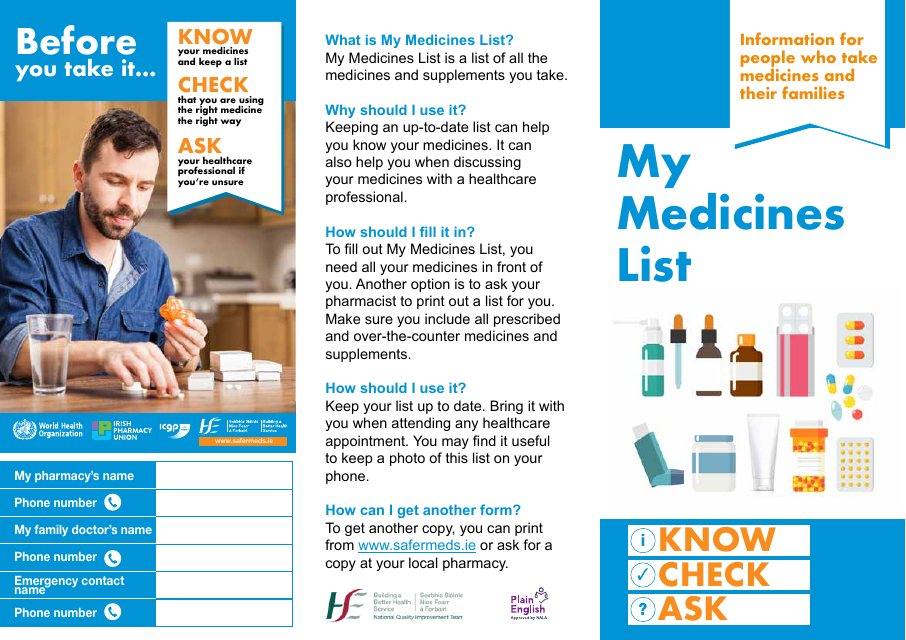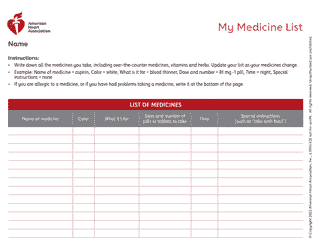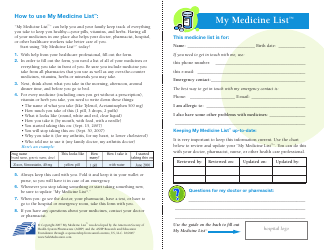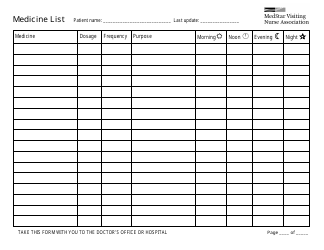Medicines List
The Medicines List is a document that provides information about approved medications, including their uses, dosage instructions, possible side effects, and precautions. It helps people and healthcare professionals make informed decisions about the medications they take or prescribe.
The Medicines List is filed by the relevant regulatory authorities in each country.
FAQ
Q: What is a medicine?
A: A medicine is a substance used to prevent, treat, or cure a disease or alleviate its symptoms.
Q: Do I need a prescription to get medicine?
A: Some medicines require a prescription from a healthcare provider, while others can be bought over-the-counter.
Q: What is an over-the-counter medicine?
A: An over-the-counter medicine is a medication that can be purchased without a prescription.
Q: What are some common over-the-counter medicines?
A: Common over-the-counter medicines include pain relievers (such as acetaminophen or ibuprofen), cough and cold medicines, antacids, and allergy medications.
Q: What is a generic medicine?
A: A generic medicine is a medication that is the same as a brand-name medicine in dosage, safety, strength, quality, and performance, but is typically more affordable.
Q: How can I dispose of expired or unused medicines?
A: To dispose of expired or unused medicines, follow specific disposal instructions on the medication label or consult with your healthcare provider or pharmacist.
Q: Can I bring medicine on a plane?
A: You are allowed to bring medicine on a plane, but it is recommended to carry it in your carry-on bag and declare it at security checkpoints.
Q: What is the FDA?
A: The FDA (U.S. Food and Drug Administration) is a federal agency responsible for protecting and promoting public health through the regulation and supervision of food safety, tobacco products, dietary supplements, prescription and over-the-counter medications, vaccines, and more.







